Who we are and what we do
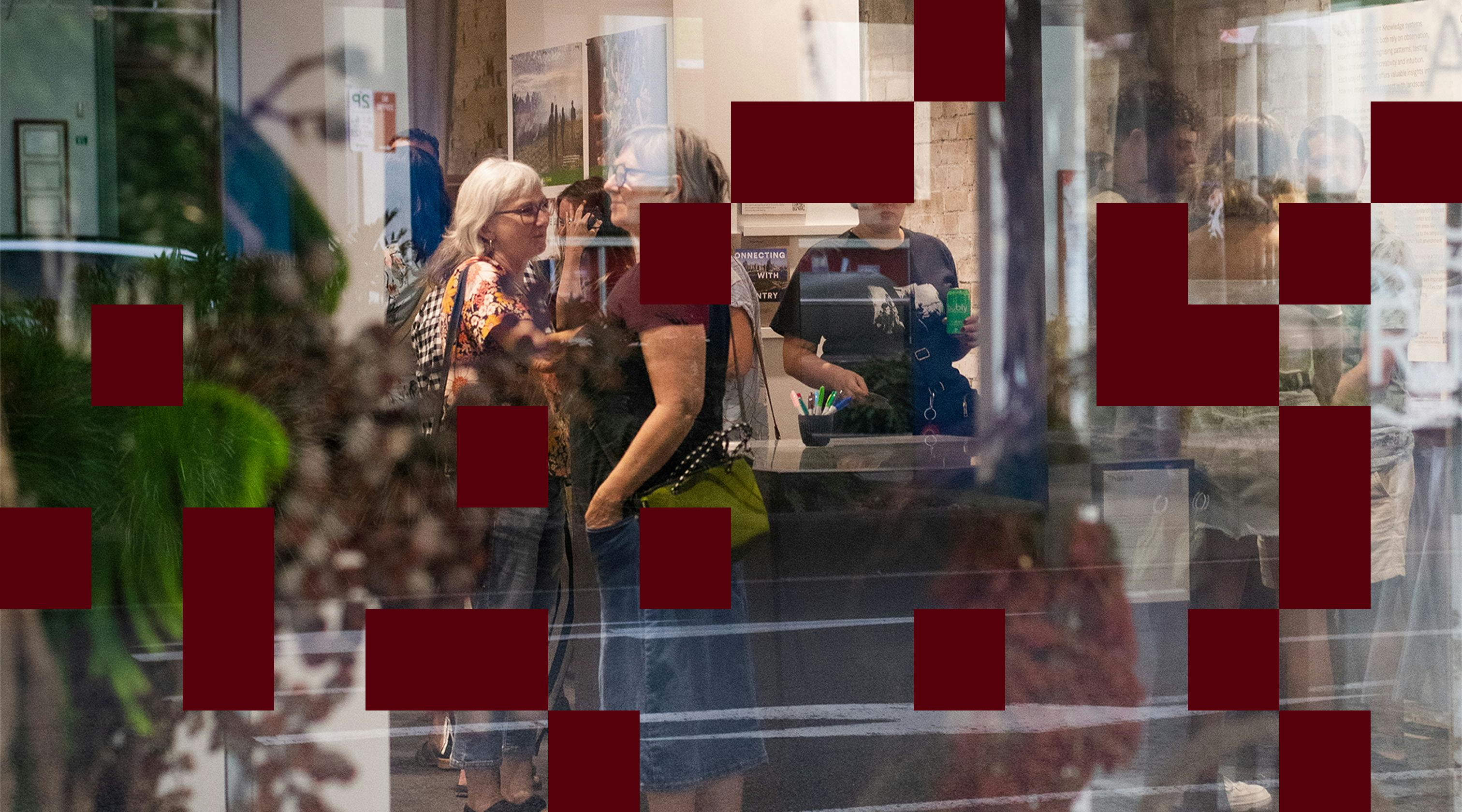
Who we are
Born from the chaos of the 2022 floods, Living Lab Northern Rivers brings locals and experts together to develop solutions and knowledge in response to climate disasters.
We connect experts from all walks of life, helping them collaborate on projects that will transform our region into a beacon of resilience and hope.
As locals, we are deeply embedded in the Northern Rivers community. We know its strengths, its challenges, and its potential. But we’re also much more than just our staff. We’re building a community of researchers and collaborators from a broad range of disciplines and regions to drive climate-resilient development in the Northern Rivers.
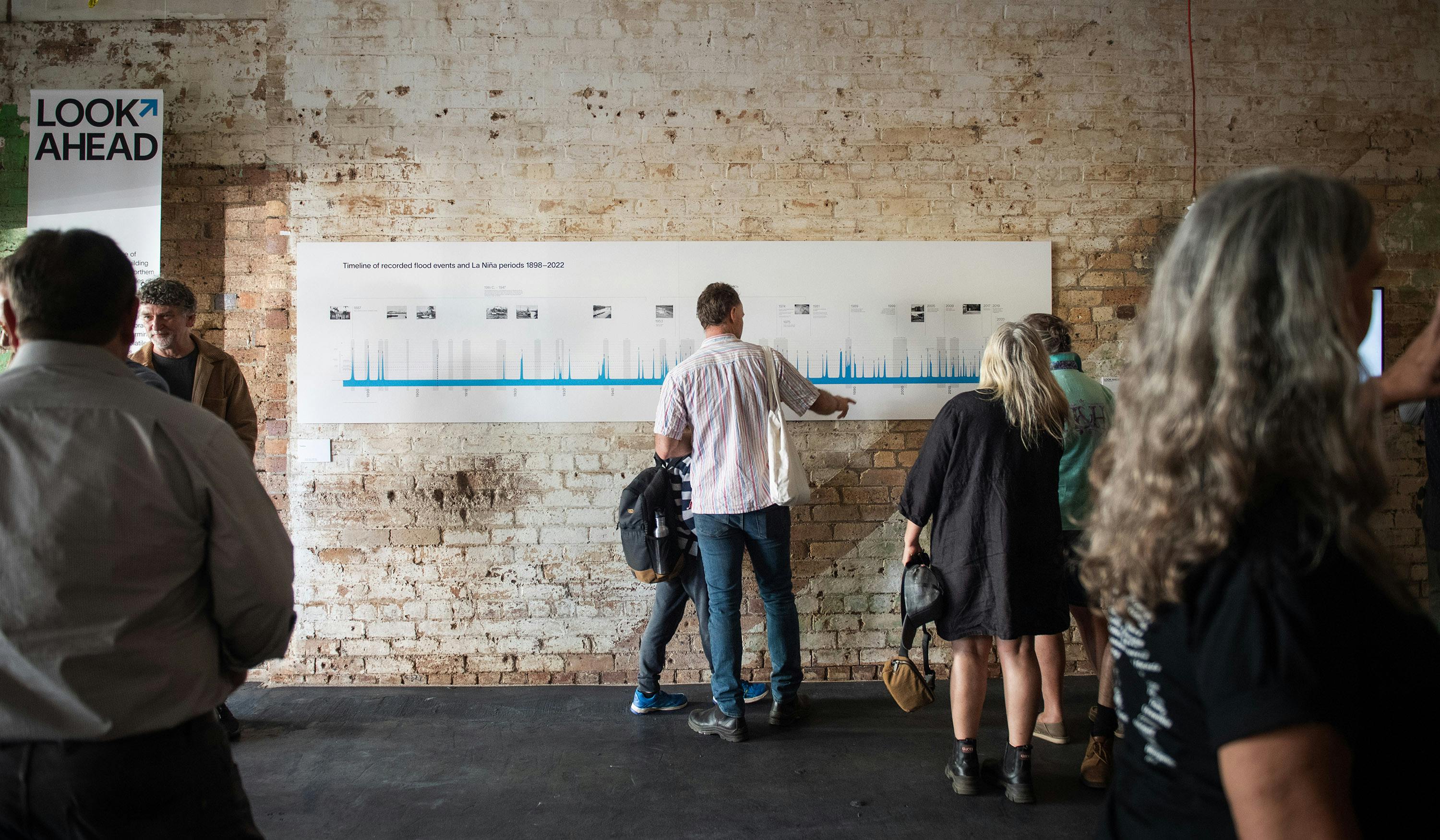
A shopfront in downtown Lismore with an open-door policy, holding regular exhibitions and workshops. That's the Living Lab Northern Rivers. Professors, punters and on-lookers all warmly welcomed.
What we do
By operating in the crucial space between community, industry, academia, and government, we're proving that a different model is possible – one that brings world-class expertise and local knowledge together to drive real change.
We use our lived experience of disaster recovery, adaptation and systems change, together with our expertise, to build resilient and sustainable communities.
We approach this by:
Community-centred methods
Go beyond traditional community engagement, creating new ways to integrate local knowledge with technical expertise. Foster collaborative processes and knowledge-sharing initiatives, to support communities with the tools to meaningfully participate in rebuilding efforts.
A third-space
Actively maintain an independent space for ideas, discussion and collaboration, creating a sustained local presence to build trust and foster real innovation.
Best-in-class research
Mobilise the world’s top researchers and creative practitioners, through our Adaptation Research Network, to build for new methodologies and approaches to resilience and recovery.
Systems thinking
Focus on spatial planning and design, acknowledging that to do this work we must seek to understand and work with all cultural, economic, health, and environmental systems.
Communication design
Translate complex information into accessible, actionable knowledge through innovative design and storytelling. As well as maintain opportunities for learning about our region’s challenges and support community literacy around critical technical issues.
Pilot projects
Provide an agile and rigorous testing ground for solutions to the complex issues of climate resilient development in the Northern Rivers.
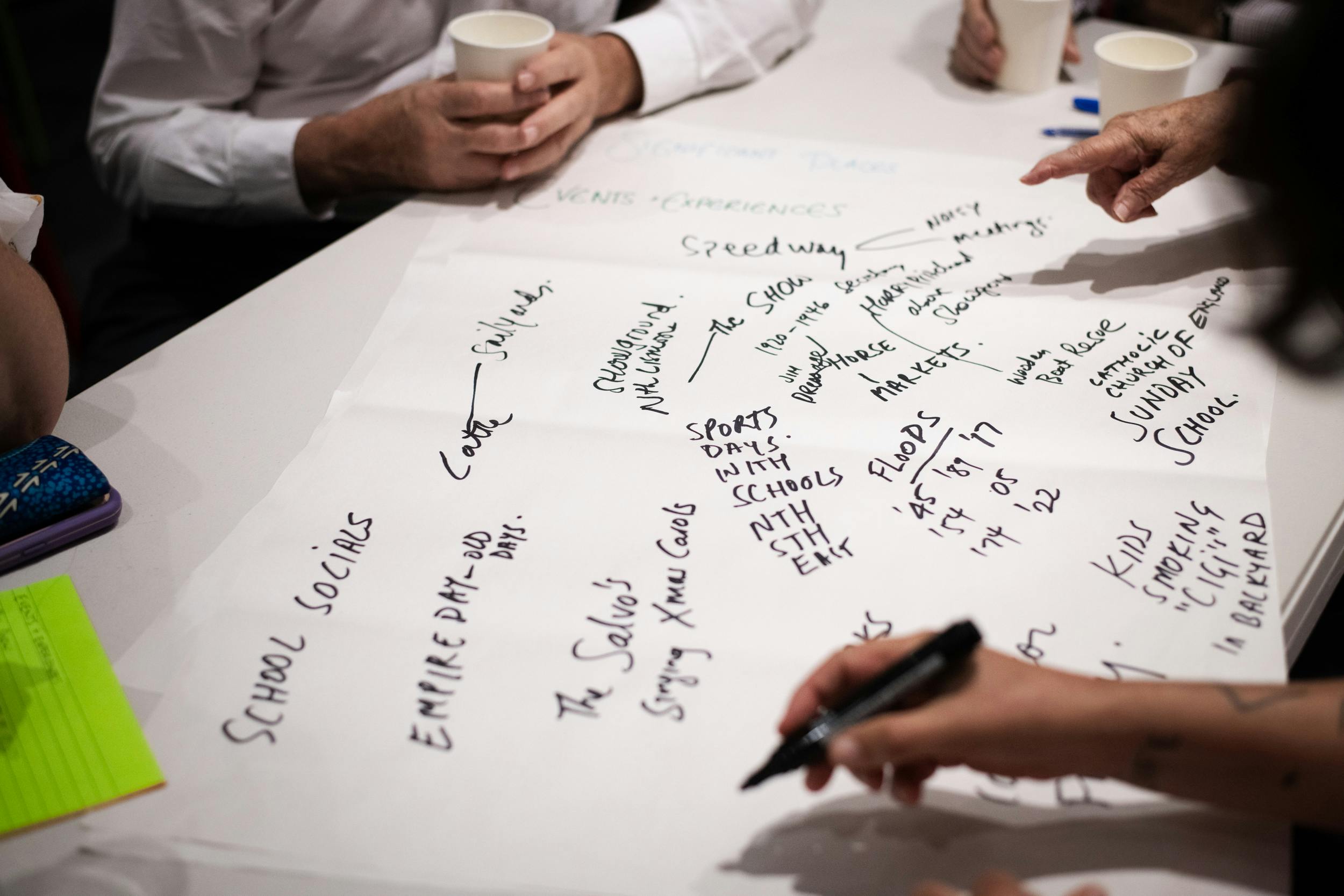
We connect experts from all walks of life, helping them collaborate on projects that will transform our region. Image by Elise Derwin.
Our founding partners
A collaboration between two universities and the NSW government, our strength comes from the diversity of people we bring to the table.
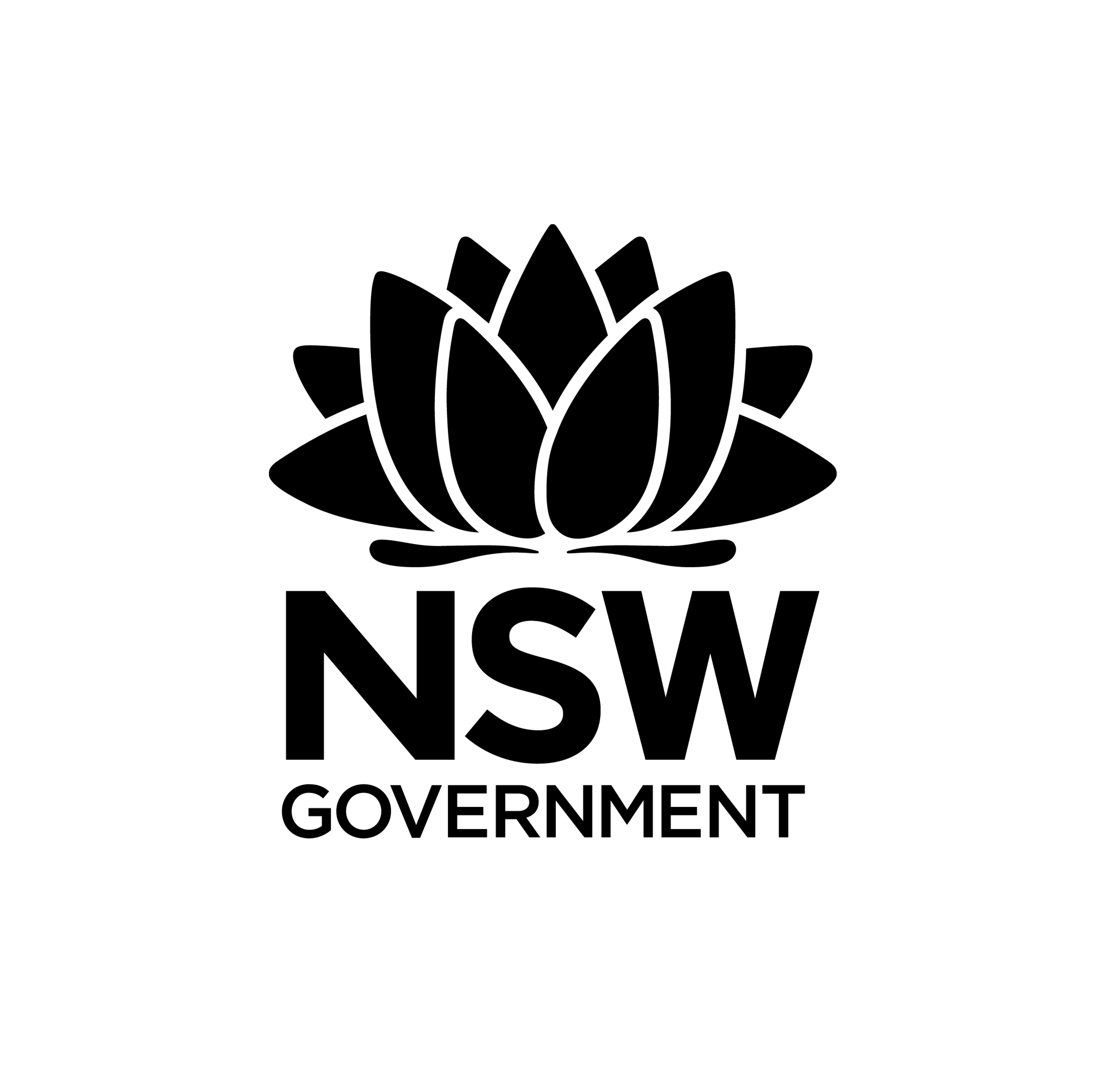


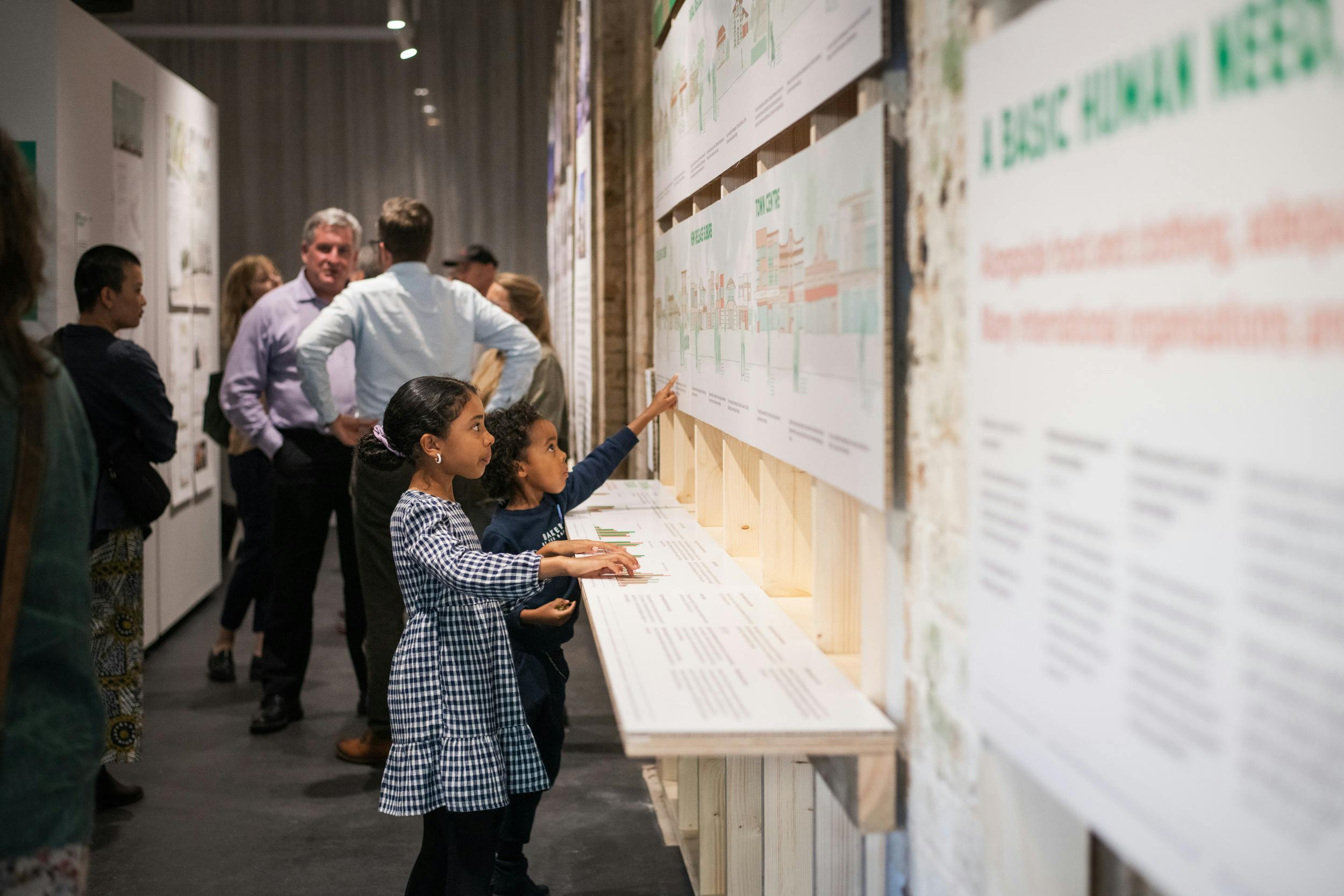
Bring It On Home, an exhibition exploring housing in the Northern Rivers. Image by Elise Derwin.
